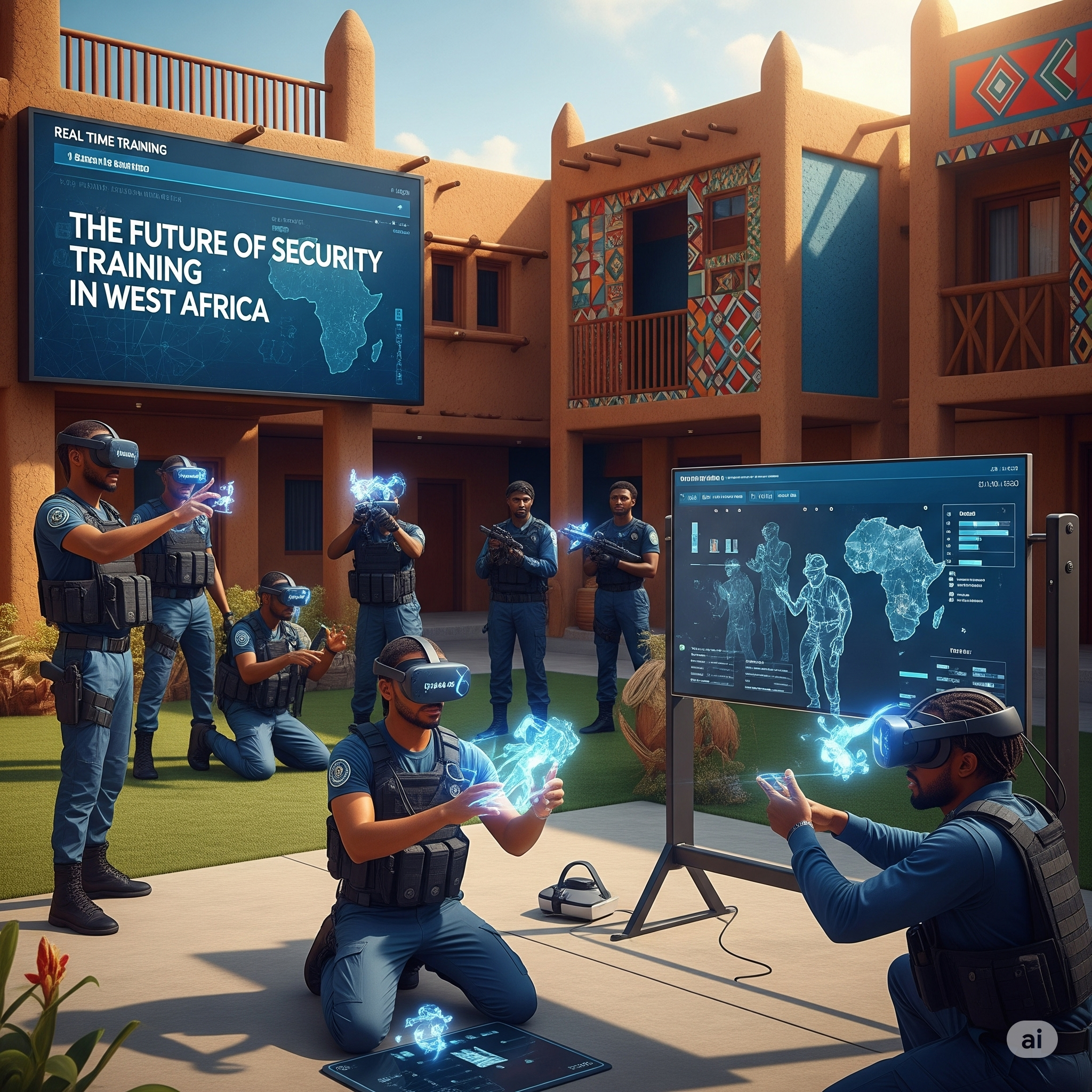
The Future of Security Training in West Africa generate
West Africa is one of the fastest-growing regions in the world—rich in natural resources, expanding cities, and increasing international investments. But alongside this growth comes complex challenges: security threats, workplace safety concerns, cybercrime, terrorism, and emergency preparedness.
To meet these challenges, the demand for professional, certified, and well-trained security officers is higher than ever. The future of security in West Africa will not be determined by traditional approaches but by modern, internationally recognized training that equips individuals and organizations with the skills they need to protect lives, businesses, and communities.
So, what does the future of security training in West Africa look like? Let’s explore.
1. International Standards Will Drive Local Excellence
In the past, many security companies in West Africa relied on basic training programs with limited scope. But the future is clear: global standards are becoming the norm.
With organizations like ISO-SEC Switzerland setting benchmarks for security and safety, companies in Ghana and across the region must adapt. ISO-SEC FG Ghana Limited is already bringing these international standards to the local market, ensuring that West African professionals can compete globally.
2. Technology Will Transform Training
The security industry is becoming more sophisticated thanks to digital tools and technology. Future training programs will include modules on:
- Cybersecurity awareness to combat digital threats.
- Surveillance systems and smart technology for modern security operations.
- Simulation-based training using virtual reality (VR) to prepare officers for real-life scenarios.
This technology-driven approach ensures officers are prepared not just for today’s threats but for the challenges of tomorrow.
3. Specialized Security Roles Will Grow
As the industry evolves, security officers will no longer be generalists. There will be increasing demand for specialists in areas such as:
- Corporate security and risk management
- VIP and executive protection
- Health, safety, and fire response
- Maritime and aviation security
- Event and crowd management
Specialized training will allow professionals to access higher-paying roles and gain recognition across borders.
4. A Stronger Link Between Security and Safety
Globally, companies now see health and safety as part of the security function. In West Africa, this means more integration of:
- First aid and CPR training
- Fire prevention and firefighting skills
- Workplace safety compliance
The future security officer will not only guard property but also act as a first responder in emergencies.
5. Security as a Career, Not Just a Job
Perhaps the most important trend is the professionalization of the industry. Security is no longer seen as just “guard work”—it is becoming a respected, rewarding, and internationally mobile career.
Certified officers can work across borders, advance into management roles, or even become consultants. This shift will inspire more young people in West Africa to pursue security training as a long-term career path.
Conclusion
The future of security training in West Africa is bright, but it requires commitment to excellence, adoption of global standards, and investment in people. With the right training, West African professionals can rise to meet global challenges, protect their communities, and build sustainable careers.
At ISO-SEC FG Ghana Limited, we are leading this future by providing world-class security and safety training, backed by ISO-SEC Switzerland’s international reputation. Our mission is to prepare West African professionals for the opportunities ahead—because the future of security starts with training today.
The future of security is global. Be part of it—get trained, get certified, and stay ahead.



